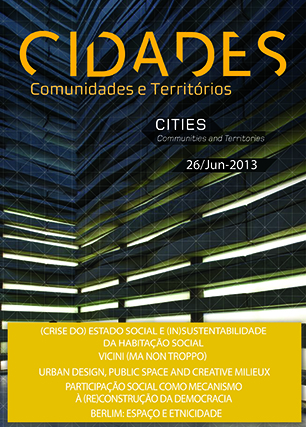Berlin: space and ethnicity - the symbolic reconstruction of the wall
Keywords:
German unification, Construction of enemies, Historical change and city, Berlin Wall, Urban space and social integrationAbstract
The article analyzes the discourses of inclusion and exclusion related to social and political contents, experiences and dynamics that marked the process of identity construction of young West Germans and migrants born in Berlin after the fall of the wall, in a context of open borders and refunctionalisation of the urban space as well as their struggles for social integration. For the specific objectives of this article we analyze exemplarily a series of interviews with a young West German and a young man of Turkish origin born in Berlin. The flexible construction of enemies demonstrated the centrality of ethnic logic in cognitive appropriation of their conditions of existence and in forming their structures of subjective elaboration of social relations.
The work presented here is the result of a long process of qualitative empirical research conducted between 1988 and 1994 in Berlin, as part of the requirements for a doctorate, conducted at the Institute of Social Sciences, Free University of Berlin, and completed in 1997. The original research was conducted between 1988 and the fall of the wall in 1989, through series of interviews with young people of both sexes, among whom were young West Germans and migrants born in Berlin and also young people from East Germany between years 1989 and 1994.
Downloads
Published
Issue
Section
License
CIDADES, Comunidades e Territórios by DINÂMIA'CET-Iscte is licensed under a CC-BY licence.






